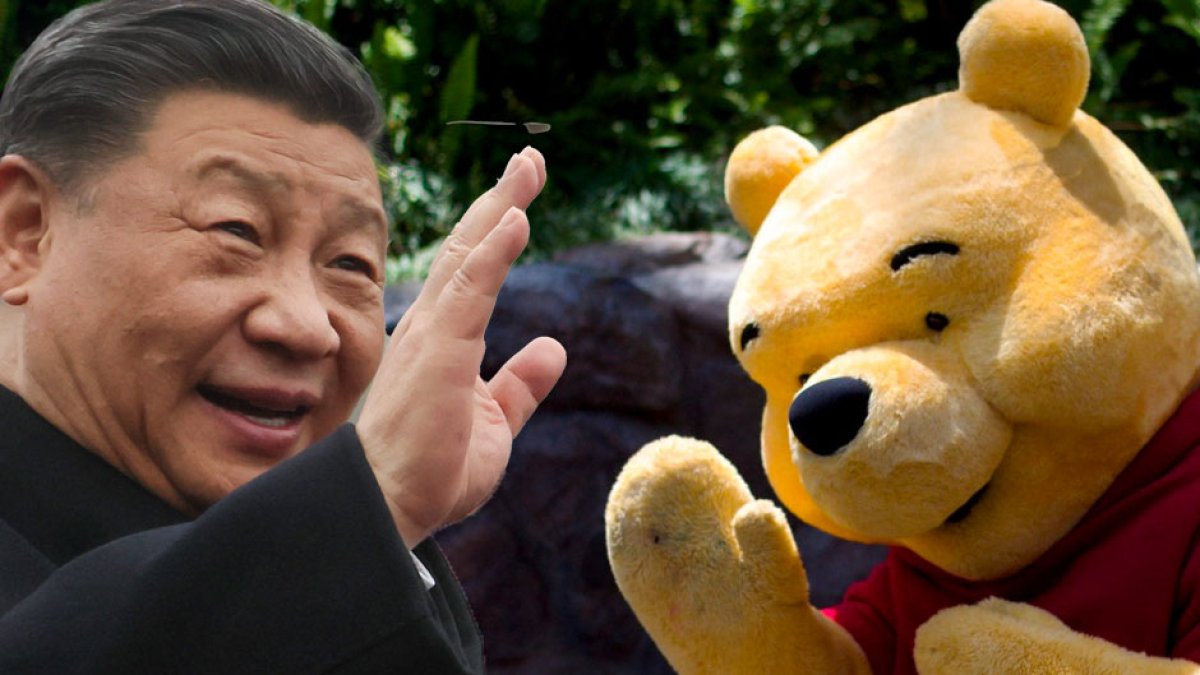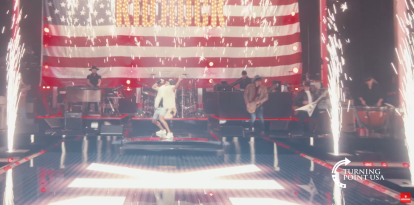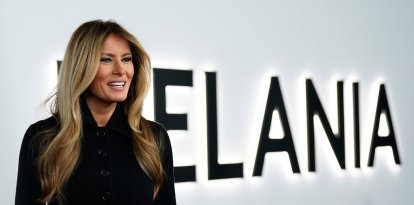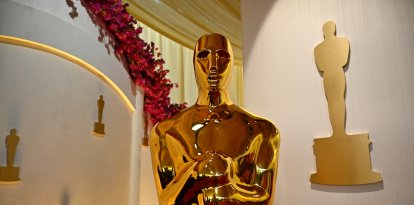China censors screening of 'Winnie-the-Pooh: Blood and Honey' movie
Xi Jinping continues his fight against the popular teddy bear.

(
The movie Winnie-the-Pooh: Blood and Honey has not been released in Hong Kong and Macau this Thursday. Nor will it be released on Friday, or ever, at least until further notice. This last censorship of the yellow bear joins a long list of bans and cancellations in the People's Republic of China intended to protect the image of President Xi Jinping.
In 2013, memes began circulating on Chinese social networks comparing then-President Obama to Tigger and Xi Jinping to Winnie Pooh, two characters created by Alan Alexander Milne and adapted by Disney.
The following year, the same thing happened after a meeting between the communist president and former Japanese minister Abe Shinzo.
Both images were censored in China. The term "Winnie Pooh" was also banned. When typing the name into Sina Weibo, China's Twitter, the search engine shows that no results can be displayed due to current laws and regulations, CNN reported. Another film, Christopher Robin: An Unforgettable Reunion, was later banned in 2018. That same year, Pooh was also removed from the video game Kingdome Hearts 3.
Blame game
Both the distributor and the Chinese government accuse each other of holding up the release.
Sunday before the unsuccessful screening, VII Pillars Entertainment posted on Facebook that Winnie The Pooh would be released in theaters on Thursday, at the same time as Lone Voice of War. On Tuesday, two days before the premiere, the same account issued another statement with a very different tone:
In an email to The Associated Press, VII Pillars Entertainment explained that theaters had notified they would not be able to show the film, but had failed to clarify the reason for the change.
However, the South China Morning Post reported that China's Secretary of Culture, Sports and Tourism, Kevin Yeung Yun-hung, stated that the Film Censorship Authority had approved the release. The decision not to screen it would have then been made by the distributor, according to Kevin Yeung.
A long list of no's
ShareAmerica, a State Department website, published a list of some censored terms in China, in addition to "Winnie the Pooh":
- Soviet jokes (苏联笑话): making fun of the Soviet Union is disrespectful to communism.
- Great Firewall of China (伟大的防火墙): discussing Chinese censorship is itself censored.
- Dalai Lama (达赖喇嘛): regarding the Tibetan leader in exile. It is a symbol of Tibet's independence.
- Tiananmen (天安门): any reference to the pro-democracy protests that ended in bloodshed is prohibited.
Once a word is banned, users look for alternatives such as resorting to misspelled words or to terms that sound the same but have a different meaning, according to network monitor What's on Weibo.
About 64 terms related to "Tiananmen" were censored near the anniversary of the protest in 2014, according to The Wall Street Journal. This is also the case for "Helan," the Mandarin pronunciation of "Netherlands." It was banned for sounding similar to "Henan Province," which the group wanted to avoid so that banking protests in that territory would not be discussed.
"The authorities continue to impose strict controls over all print, audio-visual, electronic and social media," says the 2022 Country Reports on Human Rights Practices: China released by the U.S. Department of State. The report explains that year after year the Chinese Communist Party has increasingly tightened its control over what is published in the media.
The document also states: "The authorities censored and manipulated the press, social networks and the internet, especially on sensitive issues such as public health." "Sensitive issues," like Winnie the Pooh.

























